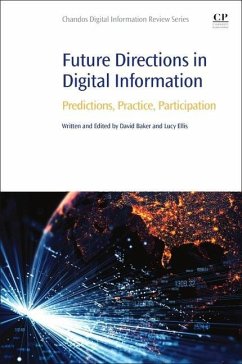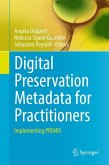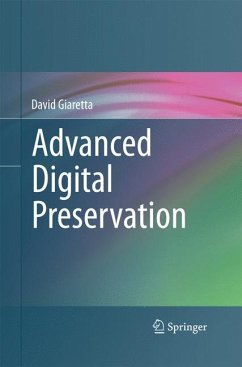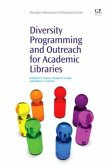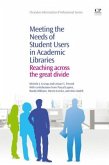The last decade has seen significant global changes that have impacted the library, information, and learning services and sciences. There is now a mood to find pragmatic information solutions to pressing global challenges. Future Directions in Digital Information presents the latest ideas and approaches to digital information from across the globe, portraying a sense of transition from old to new. This title is a comprehensive, international take on key themes, advances, and trends in digital information, including the impact of developing technologies. The latest volume in the 'Chandos Digital Information Review Series', this book will help practitioners and thinkers looking to keep pace with, and excel among, the digital choices and pathways on offer, to develop new systems and models, and gain information on trends in the educational and industry contexts that make up the information sphere. A group of international contributors has been assembled to give their view on how information professionals and scientists are creating the future along five distinct themes: Strategy and Design; Who are the Users?; Where Formal meets Informal; Applications and Delivery; and finally, New Paradigms. The multinational perspectives contained in this volume acquaint readers with problems, approaches, and achievements in digital information from around the world, with equity of information access emerging as a key challenge.
"What are some of the future directions for digital information, based on current practices, policies, and partnerships? This book provides some reasonable assumptions and details from thirty-four library leaders from around the world...The multinational approach to this book is its primary advan tage, since it allows glimpses into the wider viewpoints and challenges of libraries and information organizations around the world on these topics. I highly recommend this book for librarians involved in digital activities and planning in higher education." --Journal of Electronic Resources Librarianship
"This is a valuable compilation that conveys a diversity of approaches to meet organisational goals, make advances for user groups and help with optimising quality digital information resources, along with introducing concepts such as surveillance capitalism. As a snapshot in time, the book contains some valuable accounts and references to a period during which many of us have rapidly shifted our practice and participation with a focus on digital content." --Journal of the Australian Library and Information Association
"This is a valuable compilation that conveys a diversity of approaches to meet organisational goals, make advances for user groups and help with optimising quality digital information resources, along with introducing concepts such as surveillance capitalism. As a snapshot in time, the book contains some valuable accounts and references to a period during which many of us have rapidly shifted our practice and participation with a focus on digital content." --Journal of the Australian Library and Information Association

